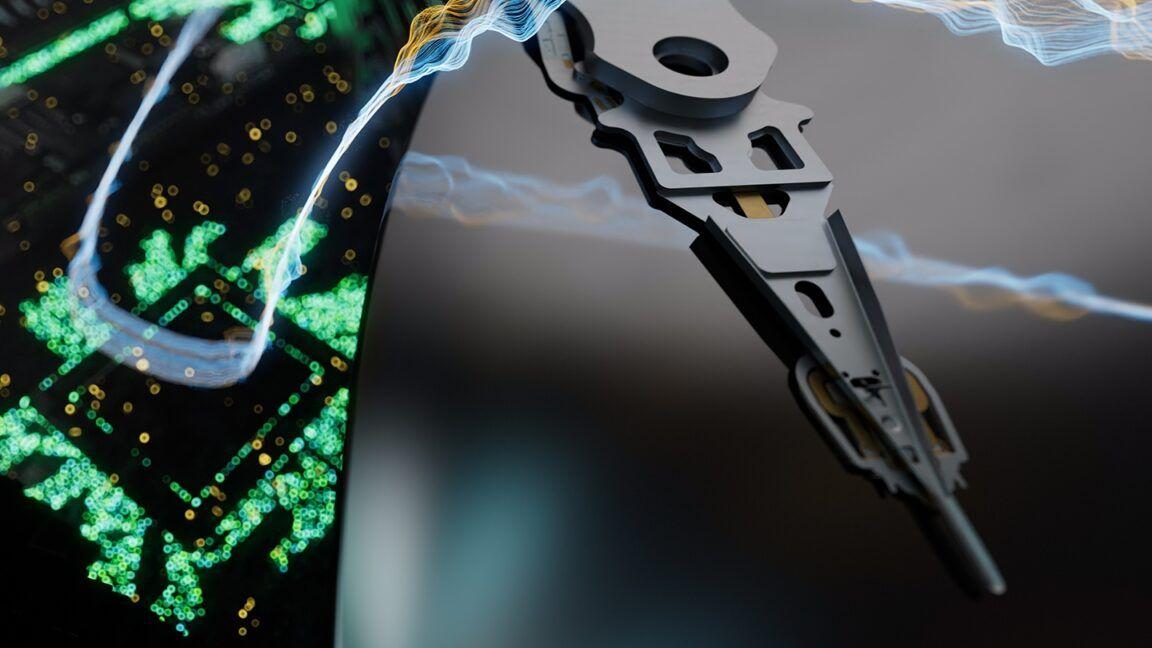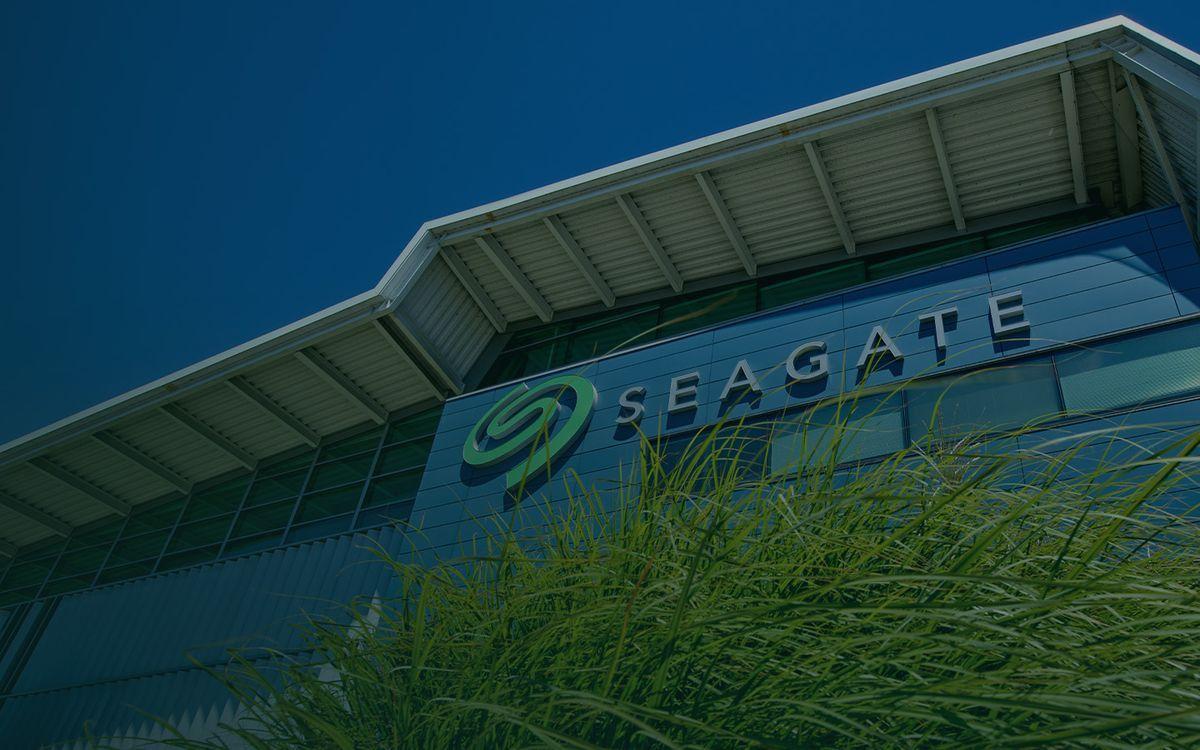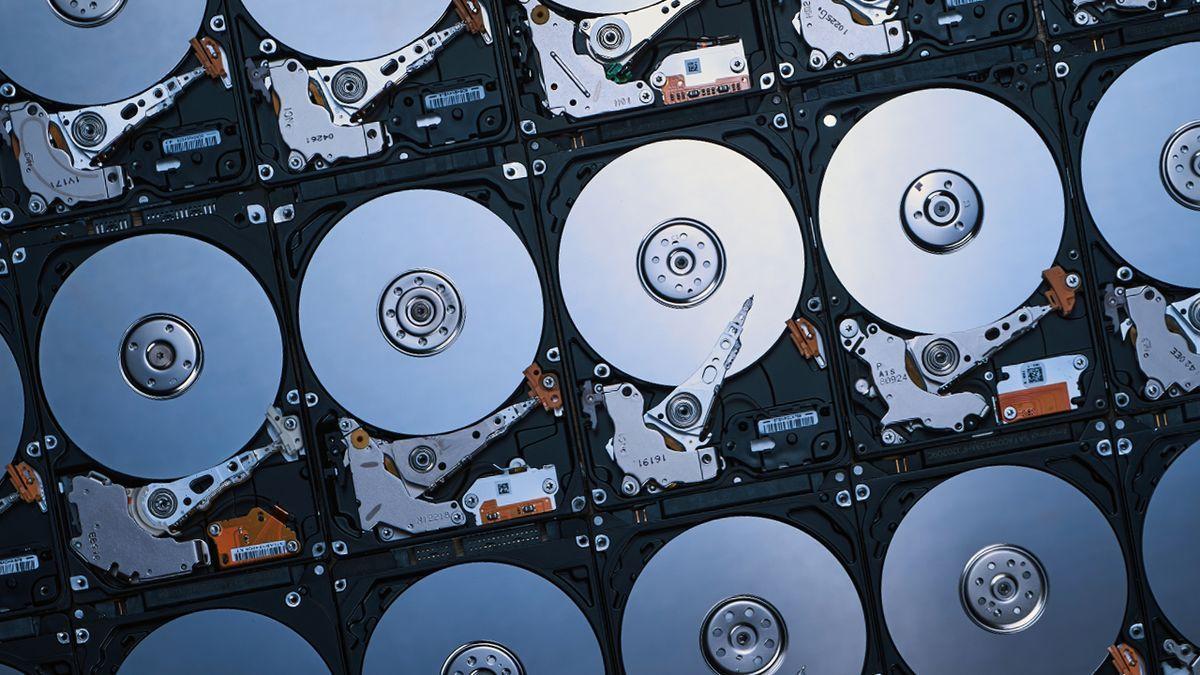Seagate Unveils 36TB Hard Drives with HAMR Technology, Targeting AI and Cloud Storage Demands
2 Sources
2 Sources
[1]
Seagate Introduces Hard Drive Capacities of Up to 36TB, Extending Its HAMR-Based Mozaic 3+ Technology Platform
Seagate Technology Holdings plc (NASDAQ: STX), an innovator of mass capacity data storage, today announced shipments of Exos M hard drive samples to select customers in industry-leading capacities up to 36 terabytes (TB). Based on Mozaic 3+, the company's breakthrough heat-assisted magnetic recording (HAMR) technology platform, Exos M delivers unprecedented storage scale for large-scale data center deployments. Dell Technologies: Infrastructure solutions provider Dell Technologies is among the first customers to adopt Mozaic 3+ and will soon integrate Exos M 32TB into their high-density storage systems. "As customers build out their AI factories, they need cost-efficient, scalable and flexible storage engineered to reliably handle the most demanding AI workloads," said Travis Vigil, SVP, ISG Product Management. "Dell PowerScale with Seagate's HAMR-enabled Mozaic 3+ technology plays a crucial role in supporting AI use cases like retrieval augmented generation (RAG), inferencing and agentic workflows. Together, Dell Technologies and Seagate are setting the standard for industry-leading AI storage innovation." Seagate: "We're in the midst of a seismic shift in the way data is stored and managed," said Dave Mosley, Seagate CEO. "Unprecedented levels of data creation - due to continued cloud expansion and early AI adoption - demand long-term data retention and access to ensure trustworthy data-driven outcomes. From capturing training checkpoints to archiving source-data sets, the more data organizations retain, the more they can validate that their applications are acting as they expect them to - and adjust course as needed." "Seagate continues to lead in areal density, sampling drives on the Exos M platform of up to 36TB today. Also, we're executing on our innovation roadmap, having now successfully demonstrated capacities of over 6TB per disk within our test lab environments." "As the world's leading producer of exabytes, and the only manufacturer capable of manufacturing 3.6TB per platter hard drives at scale, Seagate is laser-focused on delivering the storage scale required for the applications of the future," Mosley added. IDC: "As businesses and people everywhere continue to use AI applications, more widespread adoption of AI is creating unprecedented amounts of data. All this data needs to be replicated and retained for the long term," said Kuba Stolarski, Research Vice President for service provider infrastructure with analyst firm IDC. "Our research shows that hard drives continue to be a critical technology for delivering this scale, with 89% of data stored in the data centers of leading cloud service providers stored via hard drive. We believe Seagate's progress in areal density innovation positions them well to address increased demand for data storage." To learn more about Exos M and the Mozaic 3+ platform, visit Seagate.com. About Seagate Technology Seagate is a leader in mass-capacity data storage. We have delivered more than four and a half billion terabytes of capacity over the past four decades. We make storage that scales, bringing trust and integrity to innovations that depend on data. In an era of unprecedented creation, Seagate stores infinite potential. To learn more about how Seagate leads storage innovation, visit www.seagate.com and our blog, or follow us on X, Facebook, LinkedIn, and YouTube. Footnote: Method: 10TB to 30TB capacity upgrade when comparing Exos X10 to Exos M 30TB Mozaic drive, a common drive capacity needing upgrade at data centers today. ©2025 Seagate Technology LLC. All rights reserved. Seagate, Seagate Technology, Mozaic 3+, Exos, and the Spiral logo are trademarks or registered trademarks of Seagate Technology LLC in the United States and/or other countries. All other trademarks or registered trademarks are the property of their respective owners. When referring to drive capacity, one gigabyte, or GB, equals one billion bytes, one terabyte, or TB, equals one trillion bytes, and one exabyte, or EB, equals one quintillion bytes.
[2]
Seagate Introduces 36TB Exos M Drives for Ultra-Large Data Centers
Infrastructure solutions provider Dell Technologies is among the first customers to adopt Mozaic3+ and will soon integrate Exos M 32TB into their high-density storage systems. "As customers build out their AI factories, they need cost-efficient, scalable and flexible storage engineered to reliably handle the most demanding AI workloads," said Travis Vigil, SVP, ISG Product Management, Dell Technologies. "Dell PowerScale with Seagate's HAMR-enabled Mozaic 3+ technology plays a crucial role in supporting AI use cases like retrieval augmented generation (RAG), inferencing and agentic workflows. Together, Dell Technologies and Seagate are setting the standard for industry-leading AI storage innovation."
Share
Share
Copy Link
Seagate Technology introduces new Exos M hard drives with capacities up to 36TB, leveraging its HAMR-based Mozaic 3+ technology. This advancement aims to meet the growing storage demands of AI and cloud computing.

Seagate's Breakthrough in Storage Capacity
Seagate Technology Holdings plc has announced a significant advancement in data storage technology with the introduction of its Exos M hard drives, offering capacities of up to 36 terabytes (TB). This development is based on Seagate's Heat-Assisted Magnetic Recording (HAMR) technology, specifically the Mozaic 3+ platform
1
.Meeting the Demands of AI and Cloud Computing
The introduction of these high-capacity drives comes at a crucial time when data creation is experiencing unprecedented growth, largely due to cloud expansion and early AI adoption. Dave Mosley, Seagate's CEO, emphasized the importance of long-term data retention and access in ensuring trustworthy data-driven outcomes, particularly in AI applications
1
.Industry Adoption and Partnerships
Dell Technologies, a leading infrastructure solutions provider, is among the first to adopt Seagate's Mozaic 3+ technology. They plan to integrate the Exos M 32TB drives into their high-density storage systems. Travis Vigil, SVP of ISG Product Management at Dell, highlighted the importance of cost-efficient, scalable, and flexible storage for AI workloads, including retrieval augmented generation (RAG), inferencing, and agentic workflows
2
.Related Stories
Technological Advancements and Future Prospects
Seagate's achievement in areal density is noteworthy, with the company successfully demonstrating capacities of over 6TB per disk in test lab environments. As the world's leading producer of exabytes and the only manufacturer capable of producing 3.6TB per platter hard drives at scale, Seagate is well-positioned to address the increasing demand for data storage
1
.Market Impact and Industry Perspective
According to Kuba Stolarski, Research Vice President for service provider infrastructure at IDC, hard drives continue to be a critical technology for delivering scale in data storage. IDC's research indicates that 89% of data stored in the data centers of leading cloud service providers is stored on hard drives. This underscores the ongoing relevance of hard drive technology in the era of AI and cloud computing
1
.References
Summarized by
Navi
[1]
Related Stories
Seagate Launches Massive 30TB HAMR Hard Drives, Targeting AI Storage Demands
15 Jul 2025•Technology

Seagate Aims for 100TB Hard Drives by 2030, Driven by AI Storage Demands
08 May 2025•Technology

Western Digital unveils HDD tech roadmap with 100TB drives and flash-like performance for AI
03 Feb 2026•Technology

Recent Highlights
1
Pentagon threatens Anthropic with Defense Production Act over AI military use restrictions
Policy and Regulation

2
Google Gemini 3.1 Pro doubles reasoning score, beats rivals in key AI benchmarks
Technology

3
Anthropic accuses Chinese AI labs of stealing Claude through 24,000 fake accounts
Policy and Regulation





